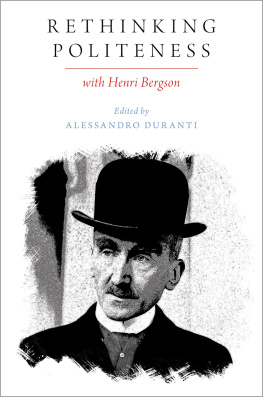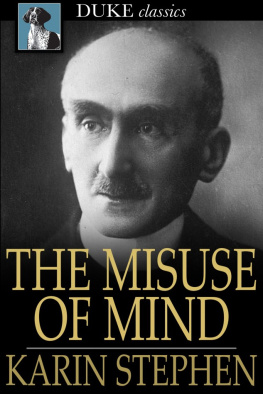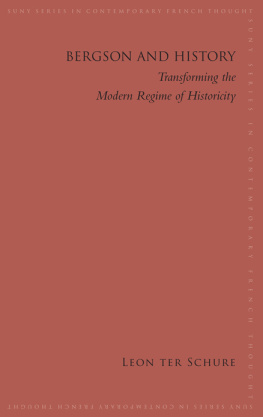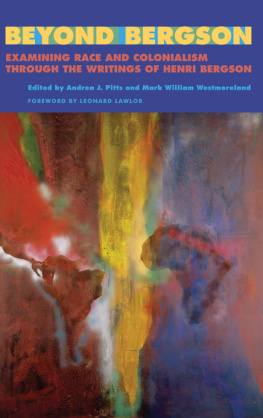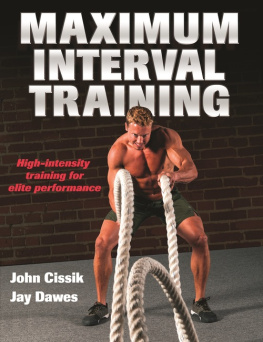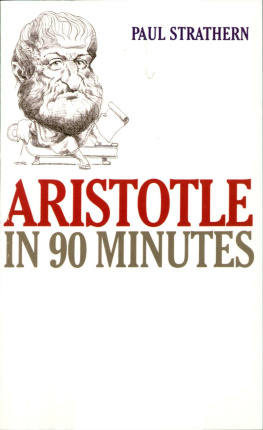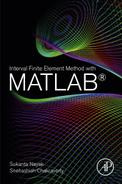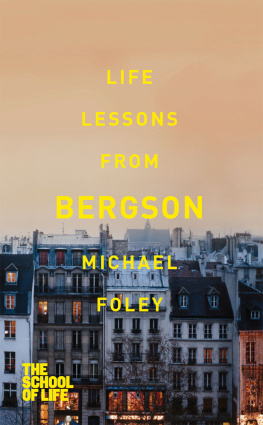THE INTERVAL
The Interval
RELATION AND BECOMING IN IRIGARAY, ARISTOTLE, AND BERGSON
Rebecca Hill

Copyright 2012 Fordham University Press
All rights reserved. No part of this publication may be reproduced, stored in a retrieval system, or transmitted in any form or by any meanselectronic, mechanical, photocopy, recording, or any otherexcept for brief quotations in printed reviews, without the prior permission of the publisher.
Fordham University Press has no responsibility for the persistence or accuracy of URLs for external or third-party Internet websites referred to in this publication and does not guarantee that any content on such websites is, or will remain, accurate or appropriate.
Fordham University Press also publishes its books in a variety of electronic formats. Some content that appears in print may not be available in electronic books.
Library of Congress Cataloging-in-Publication Data
Hill, Rebecca.
The interval : relation and becoming in Irigaray, Aristotle, and Bergson / Rebecca Hill. 1st ed.
p. cm.
Includes bibliographical references (p. ) and index.
ISBN 978-0-8232-3724-1 (cloth : alk. paper)
1. Irigaray, Luce. 2. Sex differences 3. Irigaray, Luce. Ethique de la diffrence sexuelle. 4. Aristotle. 5. Bergson, Henri,
18591941. I. Title.
B2430.I74.H55 2012
176dc22
2011016592
Printed in the United States of America
14 13 12 5 4 3 2 1
First edition
CONTENTS
ABBREVIATIONS
Irigaray
English Texts
|
|---|
ESD | An Ethics of Sexual Difference. Translated by Carolyn Burke and Gillian C. Gill (1993) |
ILTY | I Love to You: Sketch of a Possible Felicity in History. Translated by Alison Martin (1996) |
IR | The Irigaray Reader. Edited by Margaret Whitford (1991) |
JTN | Je, Tu, Nous: Toward a Culture of Difference. Translated by Alison Martin (1993) |
S | Speculum of the Other Woman. Translated by Gillian C. Gill (1985) |
TS | This Sex Which Is Not One. Translated by Catherine Porter with Carolyn Burke (1985) |
WL | The Way of Love. Translated by Heidi Bostic and Stephen Pluhek (2002) |
French Texts
|
|---|
CS | Ce sexe qui nen est pas un (1977) |
E | thique de la diffrence sexuelle (1984) |
SA | Speculum de lautre femme (1974) |
Bergson
English Texts
|
|---|
CE | Creative Evolution. Translated by Arthur Mitchell (1983) |
CM | The Creative Mind: An Introduction to Metaphysics. Translated by Mabelle L. Andison (1992) |
ME | Mind-Energy. Translated by H. Wildon Carr (1920) |
MM | Matter and Memory. Translated by Nancy Margaret Paul and W. Scott Palmer (1981) |
TFW | Time and Free Will: An Essay on the Immediate Data of Consciousness. Translated by F. L. Pogson (1913) |
French Texts
|
|---|
O | uvres (1959) |
M | Mlanges. Edited by Andr Robinet (1972) |
Other Authors
|
|---|
B | Deleuze. Bergsonism. Translated by Hugh Tomlinson and Barbara Habberjam (1991) |
BE | Deleuze. Le Bergsonisme (1968) |
BI | Olkowski. The End of Phenomenology: Bergsons Interval in Irigaray (2000) |
BP | Mullarkey. Bergson and Philosophy (1999) |
GL | Ansell-Pearson. Germinal Life: The Difference and Repetition of Deleuze (1999) |
FSD | Butler, Cornell, Cheah, and Grosz. The Future of Sexual Difference: An Interview with Judith Butler and Drucilla Cornell (1998) |
ID | Deutscher. A Politics of Impossible Difference: The Later Work of Luce Irigaray (2002) |
MP | Derrida. Margins of Philosophy. Translated by Alan Bass (1982) |
NB | Mullarkey, ed. The New Bergson (1999) |
NT | Grosz. The Nick of Time: Politics, Evolution, and the Untimely (2004) |
TT | Grosz. Time Travels: Feminism, Nature, Power (2005) |
OBT | Cheah and Grosz. Of Being-Two (1998) |
RR | Olkowski. The Ruin of Representation (1999) |
ACKNOWLEDGMENTS
I am grateful to Helen Tartar for her interest and belief in this project. My colleagues and students in the School of Media and Communication at RMIT University deserve thanks for providing a supportive and stimulating environment in which to work. I am indebted to Ewa Plonowska Ziarek and Alison Ross for reading and commenting on earlier drafts of the whole manuscript. Thanks to Claire Colebrook, Linda Daley, and Kristin Sampson for conversations that helped me to shape my thinking in this book. I wish to acknowledge Liz Grosz for her friendship and encouragement during the long gestation of this project. Her comments on various drafts of the manuscript and the inspiration of her scholarship and teaching have been invaluable to the evolution of my thinking on the interval. Megan Eastlake, Imogen Williams, Dianne Currier, Kate McDonald, Kelly Pearson, Jami Weinstein and Belinda Smaill have my gratitude for their hospitality and friendship. Thanks also to my parents Christina and John Hill and my sister Melissa Hill. I particularly wish to thank Elizabeth Lamb for her love, generosity, and companionship.
An earlier version of Chapter Five, Interval, Sexual Difference appeared as Interval, Sexual Difference in Hypatia: A Journal of Feminist Philosophy 23, no. 1 (Winter 2008). An earlier version of Chapter Six, Phallocentrism in Bergson, appeared as Phallocentrism in Bergson in Deleuze and Gender, ed. Claire Colebrook and Jami Weinstein, special issue, Deleuze Studies 2, supplement (2008).
THE INTERVAL
Introduction
THE CONCEPT OF THE INTERVAL in English and in French (lintervalle) has both spatial and temporal senses, which are by no means discrete. Frequently, the interval designates a mere gap. An interval is a break between two events or actions in time, or, in extensive terms, an interval is an empty space between two things. Whether construed as spatial or temporal, the interval is presumed to be calculable and homogeneous. The conceptualization of the interval as a calculable gap in time or in space is precisely what I will be arguing against in these pages. Instead, I suggest a heterogeneous figuration of the interval overflowing all attempts at presentation. This book argues for a formulation of the interval as the generative threshold of space and time, as the very motor of difference preceding any designation of identity, and as the place of the possibility of sexual difference.
Next page

